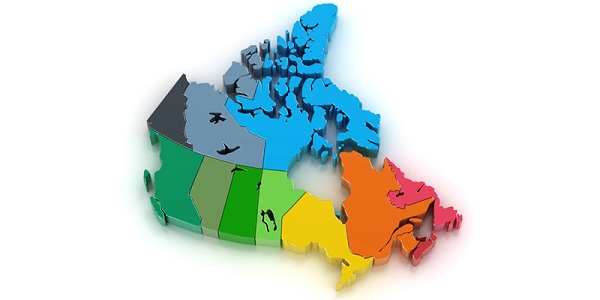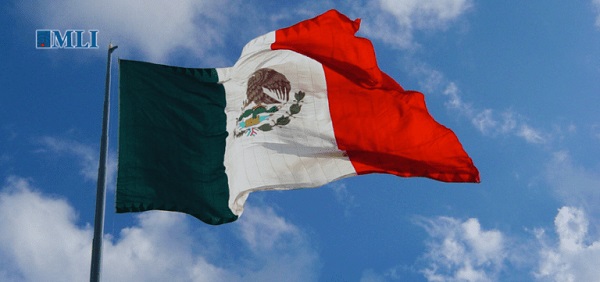News
School Winding Down, Downtown Farmer’s Market, Semis Crash!
3:11 pm – Lacombe City Council learned this week that the Lacombe Police Service saw increased calls for service for property crimes, family disputes and injury collisions over the past year. They also told council that there has been a decrease in drug charges, impaired driving and break and enter incidents. Read More.
3:04 pm – Lacombe City Council has approved new subdivision design guidelines moving forward. Read More.
For more local news, click here!
11:38 am – Brent Sutter, General Manager/Head Coach of the Red Deer Rebels Hockey Club, announced the selection of forward Kristian Reichel in today’s Canadian Hockey League Import Draft. Read More.
10:33 am – Innisfail Town Council has approved a number of changes for 56th Street. Details Here.
10:21 am – The Town of Sylvan Lake is continuing to work with the Summer Village of Norglenwold in it’s Annexation efforts. Read More.
For more local news, click here!
10:00 am – Your chance to improve your money managing skills happens at the Penhold Multi-Plex during a Financial Literacy Workshop starting at 7 pm tonight. Read More.
9:40 am – Downtown Red Deer will be pulsating today with live music on the Ross Street Patio from 4:30 – 6:30 pm today. Details Here.
9:35 am – Farm fresh produce from Central Alberta farms will be at Red Deer’s ATB Financial Downtown Market from 3:30 – 6:30 today. Read more.
For more local news, click here!
9:26 am – Red Deer’s annual Mayor’s Garden Party has been relocated to the Collicutt Centre today as a result of the inclement weather conditions expected this afternoon. Read More.
8:55 am – Get through the mid-week hump by checking out some live music at the Alexander Way Parklet today from 11:30 – 1:00 pm. Details Here.
8:36 am – Blackfalds RCMP are asking for the public’s help in finding 55 year old Gordon Denton, who was last seen on June 25th. Read More.
For more local news, click here!
8:27 am – Stettler RCMP responded to a report of 2 semi’s involved in an MVC at the intersection of Hwy 11 and Hwy 21 around 12:30 pm on Tuesday, June 27th. Mounties say one semi was travelling Northbound on Hwy 21 with the other travelling Westbound on Hwy 11. One of the semi’s failed to obey a stop sign, proceeding into the intersection causing the collision. Both drivers were taken to hospital with what is believed to be non-life threatening injuries. The investigation is ongoing and charges are pending.
8:15 am – The Downtown Farmer’s Market means road closures in the city’s core today. Details Here.
8:05 am – Thousands of Central Alberta students are wrapping up the school year with many fun activities planned for their last full day of school today. At École Mother Teresa School in Sylvan Lake, Grade 3-5 students will showcase their many talents at the Elementary Talent Show being held in the Fine Arts Room. At Maryview School in Red Deer, the school will recognize student accomplishments over the past month and entire school year at a special “Shining Stars” Year-end Awards Assembly. At St. Martin de Porres School in Red Deer, students will participate in the final CREATE (Children Regularly Engaged Actively to Excel) Session of the year. Students will choose 3 sessions to participate in which they will focus on active living. The school will also hold the final assembly of the year with fine arts presentations, SMART draws, a year-end slideshow and presentations made to staff who are leaving.
Business
Broken ‘equalization’ program bad for all provinces

From the Fraser Institute
By Alex Whalen and Tegan Hill
Back in the summer at a meeting in Halifax, several provincial premiers discussed a lawsuit meant to force the federal government to make changes to Canada’s equalization program. The suit—filed by Newfoundland and Labrador and backed by British Columbia, Saskatchewan and Alberta—effectively argues that the current formula isn’t fair. But while the question of “fairness” can be subjective, its clear the equalization program is broken.
In theory, the program equalizes the ability of provinces to deliver reasonably comparable services at a reasonably comparable level of taxation. Any province’s ability to pay is based on its “fiscal capacity”—that is, its ability to raise revenue.
This year, equalization payments will total a projected $25.3 billion with all provinces except B.C., Alberta and Saskatchewan to receive some money. Whether due to higher incomes, higher employment or other factors, these three provinces have a greater ability to collect government revenue so they will not receive equalization.
However, contrary to the intent of the program, as recently as 2021, equalization program costs increased despite a decline in the fiscal capacity of oil-producing provinces such as Alberta, Saskatchewan, and Newfoundland and Labrador. In other words, the fiscal capacity gap among provinces was shrinking, yet recipient provinces still received a larger equalization payment.
Why? Because a “fixed-growth rule,” introduced by the Harper government in 2009, ensures that payments grow roughly in line with the economy—even if the gap between richer and poorer provinces shrinks. The result? Total equalization payments (before adjusting for inflation) increased by 19 per cent between 2015/16 and 2020/21 despite the gap in fiscal capacities between provinces shrinking during this time.
Moreover, the structure of the equalization program is also causing problems, even for recipient provinces, because it generates strong disincentives to natural resource development and the resulting economic growth because the program “claws back” equalization dollars when provinces raise revenue from natural resource development. Despite some changes to reduce this problem, one study estimated that a recipient province wishing to increase its natural resource revenues by a modest 10 per cent could face up to a 97 per cent claw back in equalization payments.
Put simply, provinces that generally do not receive equalization such as Alberta, B.C. and Saskatchewan have been punished for developing their resources, whereas recipient provinces such as Quebec and in the Maritimes have been rewarded for not developing theirs.
Finally, the current program design also encourages recipient provinces to maintain high personal and business income tax rates. While higher tax rates can reduce the incentive to work, invest and be productive, they also raise the national standard average tax rate, which is used in the equalization allocation formula. Therefore, provinces are incentivized to maintain high and economically damaging tax rates to maximize equalization payments.
Unless premiers push for reforms that will improve economic incentives and contain program costs, all provinces—recipient and non-recipient—will suffer the consequences.
Authors:
National
Liberals, NDP admit closed-door meetings took place in attempt to delay Canada’s next election

From LifeSiteNews
Pushing back the date would preserve the pensions of some of the MPs who could be voted out of office in October 2025.
Aides to the cabinet of Prime Minister Justin Trudeau confirmed that MPs from the Liberal and New Democratic Party (NDP) did indeed hold closed-door “briefings” to rewrite Canada’s elections laws so that they could push back the date of the next election.
The closed-door talks between the NDP and Liberals confirmed the aides included a revision that would guarantee some of its 28 MPs, including three of Trudeau’s cabinet members, would get a pension.
Allen Sutherland, who serves as the assistant cabinet secretary, testified before the House of Commons affairs committee that the changes to the Elections Act were discussed in the meetings.
“We attended a meeting where the substance of that proposal was discussed,” he said, adding that his “understanding is the briefing was primarily oral.”
According to Sutherland, as reported by Blacklock’s Reporter, it was only NDP and Liberal MPs who attended the secret meetings regarding changes to Canada’s Elections Act via Bill C-65, An Act to Amend the Canada Elections Act before the bill was introduced in March.
As reported by LifeSiteNews before, the Liberals were hoping to delay the 2025 federal election by a few days in what many see as a stunt to secure pensions for MPs who are projected to lose their seats. Approximately 80 MPs would qualify for pensions should they sit as MPs until at least October 27, 2025, which is the newly proposed election date. The election date is currently set for October 20, 2025.
Sutherland noted when asked by Conservative MP Luc Berthold that he recalled little from the meetings, but he did confirm he attended “two meetings of that kind.”
“Didn’t you find it unusual that a discussion about amending the Elections Act included only two political parties and excluded the others?” Berthold asked.
Sutherland responded, “It’s important to understand what my role was in those meetings which was simply to provide background information.”
Berthold then asked, “You nevertheless suggested amendments to the legislation including a change of dates?”
“My role was to provide information,” replied Sutherland, who added he could not provide the exact dates of the meetings.
MPs must serve at least six years to qualify for a pension that pays $77,900 a year. Should an election be called today, many MPs would fall short of reaching the six years, hence Bill C-65 was introduced by the Liberals and NDP.
The Liberals have claimed that pushing back the next election date is not over pensions but due to “trying to observe religious holidays,” as noted by Liberal MP Mark Gerretsen.
“Conservatives voted against this bill,” Berthold said, as they are “confident of winning re-election. We don’t need this change.”
Trudeau’s popularity is at a all-time low, but he has refused to step down as PM, call an early election, or even step aside as Liberal Party leader.
As for the amendments to elections laws, they come after months of polling in favour of the Conservative Party under the leadership of Pierre Poilievre.
A recent poll found that 70 percent of Canadians believe the country is “broken” as Trudeau focuses on less critical issues. Similarly, in January, most Canadians reported that they are worse off financially since Trudeau took office.
Additionally, a January poll showed that 46 percent of Canadians expressed a desire for the federal election to take place sooner rather than the latest mandated date in the fall of 2025.
-

 Brownstone Institute4 hours ago
Brownstone Institute4 hours agoThe Most Devastating Report So Far
-

 Economy16 hours ago
Economy16 hours agoCOP 29 leaders demand over a $1 trillion a year in climate reparations from ‘wealthy’ nations. They don’t deserve a nickel.
-

 Alberta14 hours ago
Alberta14 hours agoOn gender, Alberta is following the science
-

 Energy15 hours ago
Energy15 hours agoOttawa’s proposed emission cap lacks any solid scientific or economic rationale
-

 Bruce Dowbiggin3 hours ago
Bruce Dowbiggin3 hours agoCHL Vs NCAA: Finally Some Sanity For Hockey Families
-

 Brownstone Institute1 day ago
Brownstone Institute1 day agoFirst Amendment Blues
-

 Crime2 days ago
Crime2 days agoMexican cartels are a direct threat to Canada’s public safety, and the future of North American trade
-

 Business2 days ago
Business2 days agoDEI gone?: GOP lawmakers prep to clean house in federal government




